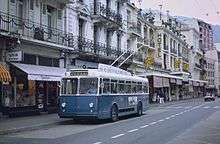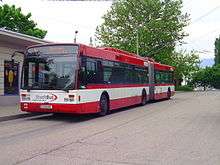Trolleybuses in Montreux/Vevey
|
Van Hool trolleybus in front of Chillon Castle | ||||||||||||||||||||||||||||||||||||||||||||||||||||||||||||||||||||||||||||||||||||||||||||||||||||||||||||||||||||||||||||||||||||||||||||||||||||||||||||||||||||||||||||||||||||||||||||||||||||||||||||||||||
| Operation | ||||||||||||||||||||||||||||||||||||||||||||||||||||||||||||||||||||||||||||||||||||||||||||||||||||||||||||||||||||||||||||||||||||||||||||||||||||||||||||||||||||||||||||||||||||||||||||||||||||||||||||||||||
|---|---|---|---|---|---|---|---|---|---|---|---|---|---|---|---|---|---|---|---|---|---|---|---|---|---|---|---|---|---|---|---|---|---|---|---|---|---|---|---|---|---|---|---|---|---|---|---|---|---|---|---|---|---|---|---|---|---|---|---|---|---|---|---|---|---|---|---|---|---|---|---|---|---|---|---|---|---|---|---|---|---|---|---|---|---|---|---|---|---|---|---|---|---|---|---|---|---|---|---|---|---|---|---|---|---|---|---|---|---|---|---|---|---|---|---|---|---|---|---|---|---|---|---|---|---|---|---|---|---|---|---|---|---|---|---|---|---|---|---|---|---|---|---|---|---|---|---|---|---|---|---|---|---|---|---|---|---|---|---|---|---|---|---|---|---|---|---|---|---|---|---|---|---|---|---|---|---|---|---|---|---|---|---|---|---|---|---|---|---|---|---|---|---|---|---|---|---|---|---|---|---|---|---|---|---|---|---|---|---|---|
| Locale | Montreux and Vevey, Switzerland | |||||||||||||||||||||||||||||||||||||||||||||||||||||||||||||||||||||||||||||||||||||||||||||||||||||||||||||||||||||||||||||||||||||||||||||||||||||||||||||||||||||||||||||||||||||||||||||||||||||||||||||||||
| Open | 1957 | |||||||||||||||||||||||||||||||||||||||||||||||||||||||||||||||||||||||||||||||||||||||||||||||||||||||||||||||||||||||||||||||||||||||||||||||||||||||||||||||||||||||||||||||||||||||||||||||||||||||||||||||||
| Status | Open | |||||||||||||||||||||||||||||||||||||||||||||||||||||||||||||||||||||||||||||||||||||||||||||||||||||||||||||||||||||||||||||||||||||||||||||||||||||||||||||||||||||||||||||||||||||||||||||||||||||||||||||||||
| Routes | 1 | |||||||||||||||||||||||||||||||||||||||||||||||||||||||||||||||||||||||||||||||||||||||||||||||||||||||||||||||||||||||||||||||||||||||||||||||||||||||||||||||||||||||||||||||||||||||||||||||||||||||||||||||||
| Operator(s) | VMCV | |||||||||||||||||||||||||||||||||||||||||||||||||||||||||||||||||||||||||||||||||||||||||||||||||||||||||||||||||||||||||||||||||||||||||||||||||||||||||||||||||||||||||||||||||||||||||||||||||||||||||||||||||
| Infrastructure | ||||||||||||||||||||||||||||||||||||||||||||||||||||||||||||||||||||||||||||||||||||||||||||||||||||||||||||||||||||||||||||||||||||||||||||||||||||||||||||||||||||||||||||||||||||||||||||||||||||||||||||||||||
| Electrification | 600 V DC | |||||||||||||||||||||||||||||||||||||||||||||||||||||||||||||||||||||||||||||||||||||||||||||||||||||||||||||||||||||||||||||||||||||||||||||||||||||||||||||||||||||||||||||||||||||||||||||||||||||||||||||||||
| Statistics | ||||||||||||||||||||||||||||||||||||||||||||||||||||||||||||||||||||||||||||||||||||||||||||||||||||||||||||||||||||||||||||||||||||||||||||||||||||||||||||||||||||||||||||||||||||||||||||||||||||||||||||||||||
| Route length | 12.8 km (8.0 mi) | |||||||||||||||||||||||||||||||||||||||||||||||||||||||||||||||||||||||||||||||||||||||||||||||||||||||||||||||||||||||||||||||||||||||||||||||||||||||||||||||||||||||||||||||||||||||||||||||||||||||||||||||||
| ||||||||||||||||||||||||||||||||||||||||||||||||||||||||||||||||||||||||||||||||||||||||||||||||||||||||||||||||||||||||||||||||||||||||||||||||||||||||||||||||||||||||||||||||||||||||||||||||||||||||||||||||||
| Website | VMCV (French) | |||||||||||||||||||||||||||||||||||||||||||||||||||||||||||||||||||||||||||||||||||||||||||||||||||||||||||||||||||||||||||||||||||||||||||||||||||||||||||||||||||||||||||||||||||||||||||||||||||||||||||||||||
The Montreux/Vevey trolleybus system (French: Réseau trolleybus de Montreux/Vevey), also known as the Vevey–Villeneuve trolleybus line, forms part of the public transport network in Montreux and Vevey, in the canton of Vaud, Switzerland. It comprises a single 12.75 km (7.92 mi) long trolleybus route along the length of the Riviera vaudoise (Vaud Riviera) on the north shore of Lake Geneva.[1]
Opened in 1957, the line is designated as line 201 (prior to 11 December 2010, line 1) of the local bus network, operated by Transports publics Vevey-Montreux-Chillon-Villeneuve (VMCV). In addition to line 201, the VMCV runs eight motorbus lines. However, with 5,204,000 passengers annually, the trolleybus route is by far the busiest of all the operator's lines, and generates 74 percent of its total revenue.
The Vevey–Villeneuve trolleybus line is the last remaining of several interurban trolleybus lines that have existed in Switzerland.[1] It largely follows Swiss main road no. 9, and passes through the municipalities of Vevey, La Tour-de-Peilz, Montreux, Veytaux and Villeneuve, and serves a total of 41 stops.
History

The trolleybus line's ultimate predecessor, the Vevey–Montreux–Chillon tramway, opened in 1888, and was Switzerland's first electric tramway. The line was extended to Villeneuve in 1903, and became the Vevey–Montreux–Chillon–Villeneuve tramway in 1913. Plans to replace the tramway with a trolleybus line were first developed in 1938, but in view of the outbreak of World War II, the design work was discontinued.[2]
It was only in 1955 that the construction of the trolleybus catenary was begun. The route went into operation in four sections, two of them on the same day, as follows:[2]
| 18 April 1957 | Montreux Marché–Territet Gare |
| 8 July 1957 | Clarens Dépôt VMCV–Montreux Marché |
| 19 January 1958 | Vevey Funiculaire–Clarens Dépôt VMCV and Territet Gare–Villeneuve Gare |
The last of these dates also marked the permanent closure of the final section of the Vevey–Montreux–Chillon–Villeneuve tramway.[2]
Initially, the trolleybus service ran at a headway of 7.5 minutes, which compared favourably with the eight-minute headway of the trams. From 1963, nine bus trailers were available to augment the trolleybuses during rush hour.[2]
In the second half of the 1990s, the original overhead wires and the depot were fully renewed.
Services
The travel time for the Vevey Funiculaire–Villeneuve Gare trip is 38 minutes, and the trip in the opposite direction takes 37 minutes.
Nine trolleybus duties are required for the 10-minute clock-face schedule offered all day, allowing for a seven-minute turnaround in Vevey, and eight minutes in Villeneuve. During the Montreux Jazz Festival, which takes place in July, 12 vehicles operate a special, more frequent service.[3] In the evenings, from approximately 8:00 pm, the headway becomes 20 minutes.
Prior to 12 December 2010, the VMCV offered an express bus service between Funiculaire Vevey and Montreux Marché every 20 minutes during peak times on the former line 1.[3] This service stopped at only a few selected intermediate stops. The three extra duties were operated with rigid motorbuses, because only motorbuses could overtake the trolleybuses operating the regular services on that line. In the course of the integration of the VMCV into the Mobilis Vaud on 12 December 2010, the express bus service was withdrawn, not least because the trains on the Lausanne–Brig railway line running parallel to the trolleybus line could be used with the same ticket from that date.
Planned extension
In the medium term, a 2.5 km-long extension to Rennaz is planned at the eastern end of the trolleybus line. A large hospital with 300 beds and 1,000 employees is to be built in Rennaz between 2013 and 2015, and a corresponding passenger potential for the trolleybus is anticipated.[3] Approximately 1,000 extra passengers per day are expected to be generated by the new hospital.
Fleet
Original fleet
The system's original fleet consisted of 18 rigid trolleybuses, with fleet numbers 1 to 18. They were jointly developed by Berna and the Ateliers de Constructions Mécaniques de Vevey (ACMV), with electrical equipment by Société Anonyme des Ateliers de Sécheron (SAAS).
Current fleet

For the nine trolleybus duties used to operate line 201, the VMCV currently has 16 low-floor articulated trolleybuses with fleet numbers 1, 3-14 and 16-18.[3] They were produced by the Belgian company Van Hool, with electrical equipment by Kiepe.[2] They entered service in place of the original fleet between 1994 and 1996[2] and are expected to be used until about 2020.[3]
Upon the retirement of the original fleet, the Vevey–Villeneuve line became the first Swiss trolleybus system to be operated entirely by a low-floor fleet.
The Van Hool trolleybuses were specially designed for the VMCV. Similar vehicles with the type designation AG300T were later supplied to the trolleybus systems in Esslingen am Neckar, Salzburg, Solingen and Arnhem.
Seven trolleybuses in the current VMCV fleet serve as reserve vehicles. Two other units from this series (nos. 2 and 15) were sold to the Salzburg trolleybus system in 2008,[3] due to a lack of passenger demand. They were eventually placed in service in Salzburg after refurbishment and the allocation of new fleet numbers 259 and 260.
The VMCV also lent three vehicles from the reserve fleet to the neighbouring Lausanne trolleybus system between 2005 and 2007.
See also
References
Notes
- 1 2 Atlas suisse des tramways et des trolleybus (in German/French). Editions Endstation Ostring. June 2016. ISBN 978-3-9522545-4-7.
- 1 2 3 4 5 6 "Trolleybus city: Montreux-Vevey (Schweiz)". Trolleymotion website. Trolleymotion. Retrieved 20 October 2012.
- 1 2 3 4 5 6 Lehmann, Juergen (5 April 2010). "Montreux-Vevey (CH) - Erweiterung an der Schweizer Riviera geplant" [Montreux-Vevey (CH) - Extension planned on the Swiss Riviera]. Trolleymotion website (in German). Trolleymotion. Retrieved 20 October 2014.
Further reading
- Coppex, Jean-Philippe (2008). Les trolleybus régionaux en Suisse / Die Schweizer Überlandtrolleybusse [The Swiss Interurban Trolleybuses]. Genève: Verlag Endstation Ostring. ISBN 978-3-9522545-3-0. (French) (German)
- Schwandl, Robert (2010). Schwandl's Tram Atlas Schweiz & Österreich. Berlin: Robert Schwandl Verlag. ISBN 978 3 936573 27 5. (German) (English)
External links
| Wikimedia Commons has media related to Trolleybuses in Montreux/Vevey. |
- "Trolleybus city: Montreux-Vevey (Schweiz)". Trolleymotion.
- Montreux database / photo gallery and Montreux trolleybus list at Urban Electric Transit – in various languages, including English.